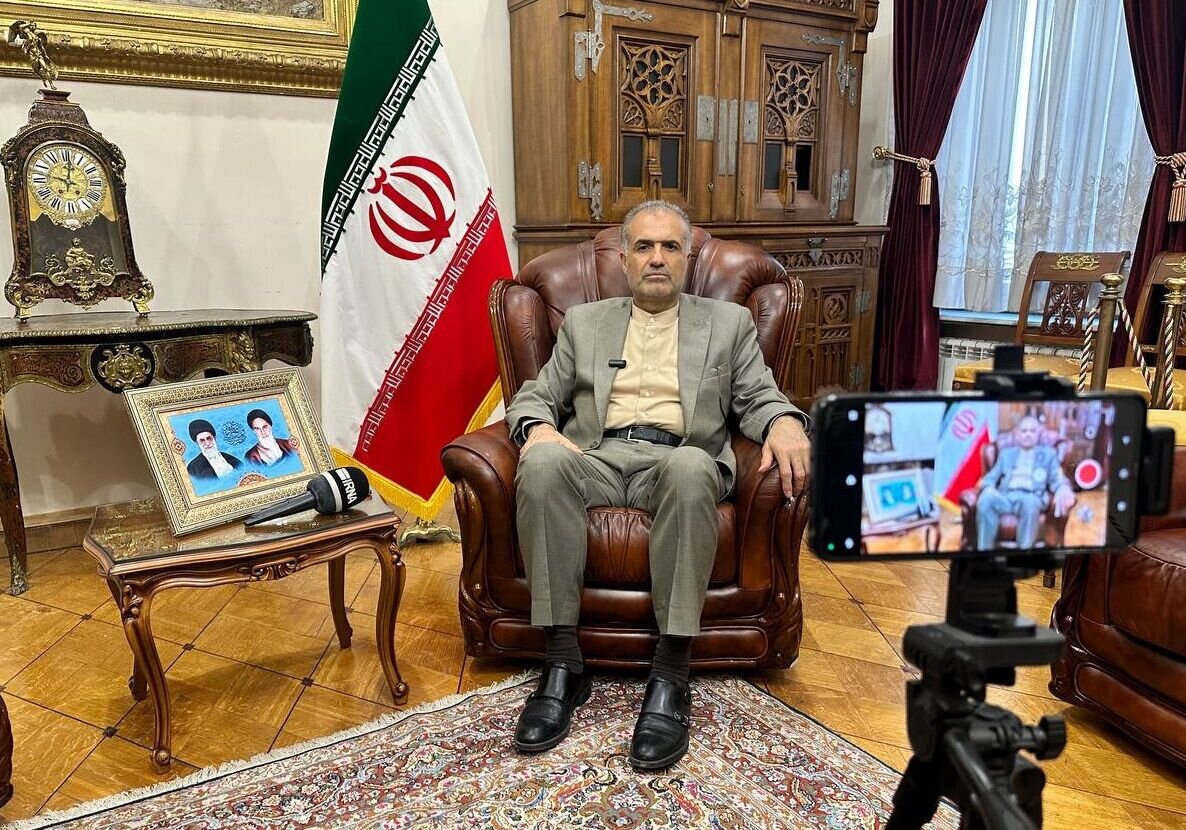Putin invited Pezeshkian to attend BRICS summit: envoy

TEHRAN- Iran’s ambassador to Moscow announced that the President of Russia has formally invited Iranian President Masoud Pezeshkian to attend the upcoming BRICS summit in Kazan and sign a Russia-Iran comprehensive agreement.
In a recent interview with IRNA, Kazem Jalali mentioned that Vladimir Putin congratulated Pezeshkian on his recent election victory during a phone conversation and subsequently invited him to participate in the BRICS summit.
“Scheduled to take place in Kazan from October 22 to 24, 2024, Russia will host the BRICS summit while also holding the rotating presidency for the first time since the group's expansion,” Jalali noted.
He further elaborated that the leaders of BRICS will engage in discussions and address significant topics during the 2024 summit in Kazan.
Regarding the timeline for the signing of the comprehensive agreement between Russia and Iran, Jalali indicated that the foreign ministries of both nations have approved the document, but procedural legislative steps must be completed before the signing can occur.
He also suggested that there is a possibility for Iran and Russia to finalize the comprehensive agreement during the BRICS summit.
Earlier, Iran’s acting foreign minister, Ali Bagheri Kani, remarked that the increasing cooperation between Iran and Russia reflects the strong commitment of both countries' leaders to enhance their bilateral relations and capitalize on all available opportunities for the benefit of their nations.
In 2024, Iran and Russia are in the process of finalizing a new comprehensive cooperation agreement intended to supersede the previous 20-year pact established in 2001. This new agreement seeks to broaden the extent and depth of their collaborative efforts.
The anticipated agreement is designed to solidify enhanced political, economic, and military relations between the two nations. It underscores the growing partnership between Tehran and Moscow, particularly in response to their mutual opposition to Western policies and sanctions. Significant areas of collaboration include military technology, intelligence sharing, and economic alliances.
This agreement represents a strategic initiative for both countries, aiming to bolster their influence on the global stage and mitigate Western dominance.
